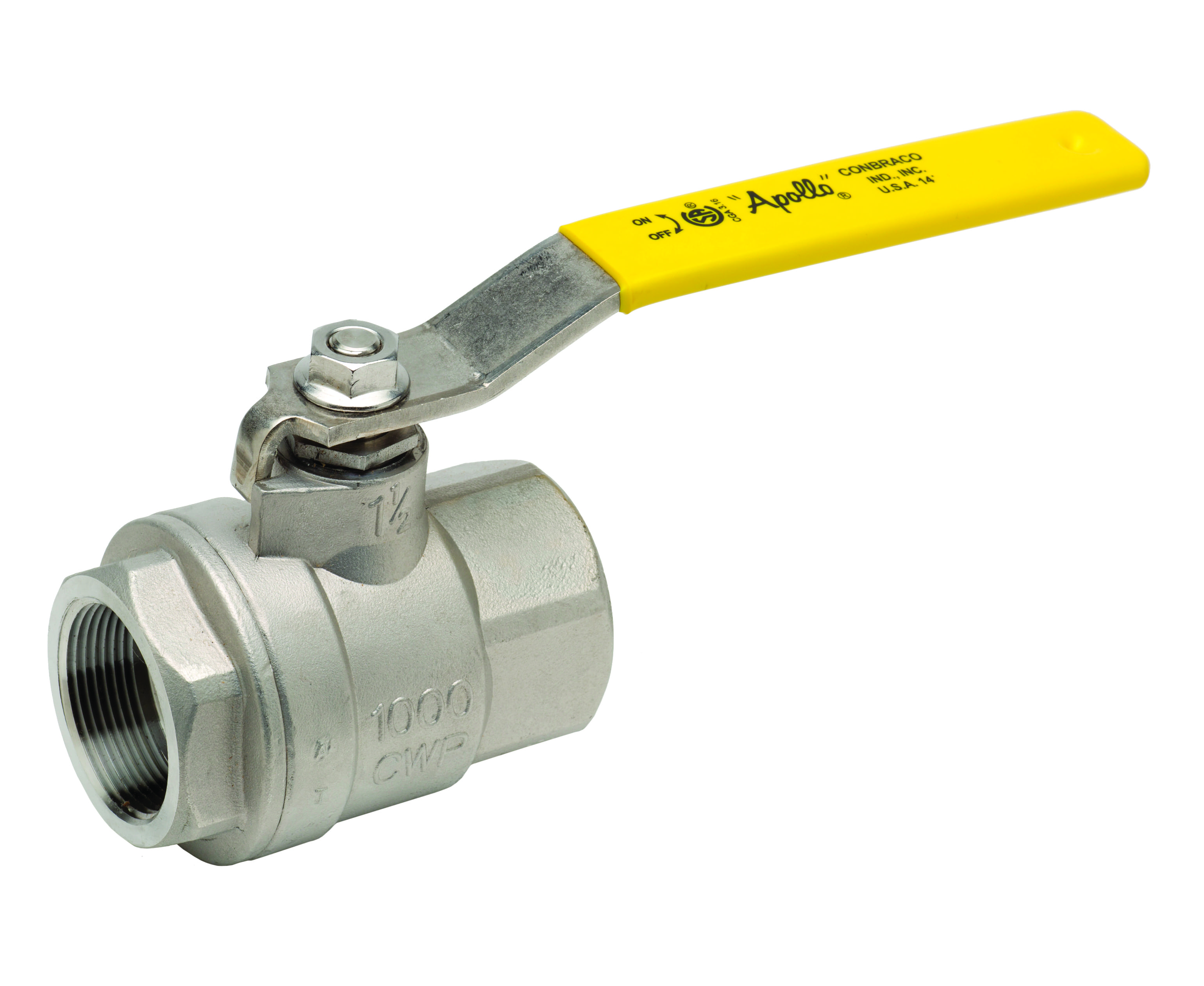

Apollo Valves has been a recognized leader in valve manufacturing for decades, producing reliable, precision-engineered ball valves for industrial, commercial, and residential applications. Known for American manufacturing quality and rigorous testing, Apollo offers a wide range of ball valve designs to meet specific flow control, pressure, and service requirements.
This article covers the primary types of Apollo ball valves and the quality standards that set them apart.
What Is a Ball Valve?
A ball valve is a quarter-turn shut-off valve that uses a rotating spherical ball with a central bore to control flow. Turning the handle 90° fully opens or closes the valve, providing fast, reliable shut-off with minimal pressure drop.
Advantages of ball valves include:
-
Tight sealing, even after long periods of non-use
-
Simple operation and low torque requirement
-
High flow capacity due to full-bore or reduced-port options
-
Versatility in size, pressure rating, and materials
Types of Apollo Ball Valves
Apollo manufactures a complete spectrum of ball valves for different industries and media.
1. Two-Piece Ball Valves
-
Design: Body made from two separate pieces, with the ball held in position by the connection between the halves.
-
Common Models: Apollo 70 Series
-
Advantages: Easy maintenance, widely used in industrial and commercial service.
-
Applications: HVAC, chemical processing, water systems, and general industrial.
2. Three-Piece Ball Valves
-
Design: Three-body sections with bolted connections, allowing the center section (ball, seats, seals) to be removed for maintenance without removing the valve from the pipeline.
-
Advantages: Ideal for systems requiring frequent cleaning, repair, or part replacement.
-
Applications: Food & beverage, pharmaceuticals, chemical processing.
3. One-Piece Ball Valves
-
Design: Single-body construction for maximum strength and minimal leak paths.
-
Advantages: Economical, compact, and lightweight.
-
Applications: OEM equipment, small water lines, low-maintenance systems.
4. Full Port (Full Bore) Ball Valves
-
Design: Ball bore is the same diameter as the pipeline, minimizing pressure drop.
-
Advantages: Maximized flow rate and reduced turbulence.
-
Applications: Slurries, viscous fluids, and applications requiring high flow efficiency.
5. Standard Port (Reduced Bore) Ball Valves
-
Design: Ball bore is smaller than the pipe size.
-
Advantages: Lower cost, lighter weight, still provides excellent shut-off.
-
Applications: General industrial, compressed air, and utility lines.
6. Threaded End Ball Valves
-
Connections: NPT (National Pipe Thread) ends for quick, simple installation.
-
Applications: Low- to medium-pressure liquid and gas lines.
7. Flanged End Ball Valves
-
Connections: ANSI B16.5 flanges for secure, high-strength bolted installation.
-
Applications: High-pressure and large-diameter systems in industrial plants.
8. Specialty & High-Performance Ball Valves
-
Fire-Safe Ball Valves – Certified to API 607 for fire safety in petrochemical service.
-
Marine Ball Valves – Corrosion-resistant materials for saltwater exposure.
-
Cryogenic Ball Valves – Designed for extremely low-temperature service.
-
Lead-Free Ball Valves – NSF/ANSI 61 & 372 certified for potable water applications.
Quality Standards and Features of Apollo Ball Valves
Apollo Valves are engineered with strict quality control and industry-standard compliance to ensure performance and safety.
1. Manufacturing Excellence
-
Many Apollo ball valves are Made in the USA
-
Precision machining for consistent sealing and smooth operation
-
100% leak-tested prior to shipment
2. Compliance with Key Standards
-
ANSI/ASME B16.34 – Valve design & pressure-temperature ratings
-
API 607 – Fire-safe performance
-
MSS SP-110 – Ball valve design & materials
-
NSF/ANSI 61 & 372 – Potable water safety
-
CSA & UL Listings – For gas and specialty applications
3. Material Options
-
Brass – Durable, cost-effective for water, air, and non-corrosive fluids
-
Stainless Steel – Corrosion-resistant for aggressive media
-
Bronze – Excellent in marine and steam service
-
Lead-Free Alloys – For compliance with potable water regulations
4. Design Benefits
-
Low operating torque for easy manual or automated control
-
Secure blow-out proof stem design
-
Advanced seat and seal materials for wide temperature and pressure ranges
-
Options for locking handles to prevent unauthorized operation
Why Choose Apollo Ball Valves?
-
Versatility – Multiple designs, materials, and end connections for any industry
-
Proven Performance – Decades of use in critical systems worldwide
-
Safety & Compliance – Meets or exceeds all major valve standards
-
Domestic Manufacturing – Quality control and traceability you can trust
Conclusion
From general-purpose brass valves to high-performance stainless steel ball valves for demanding service, Apollo offers a full range of options backed by proven quality and engineering.
Whether your application requires tight shut-off, long service life, or compliance with potable water and fire-safe standards, Apollo has a solution designed to perform.

